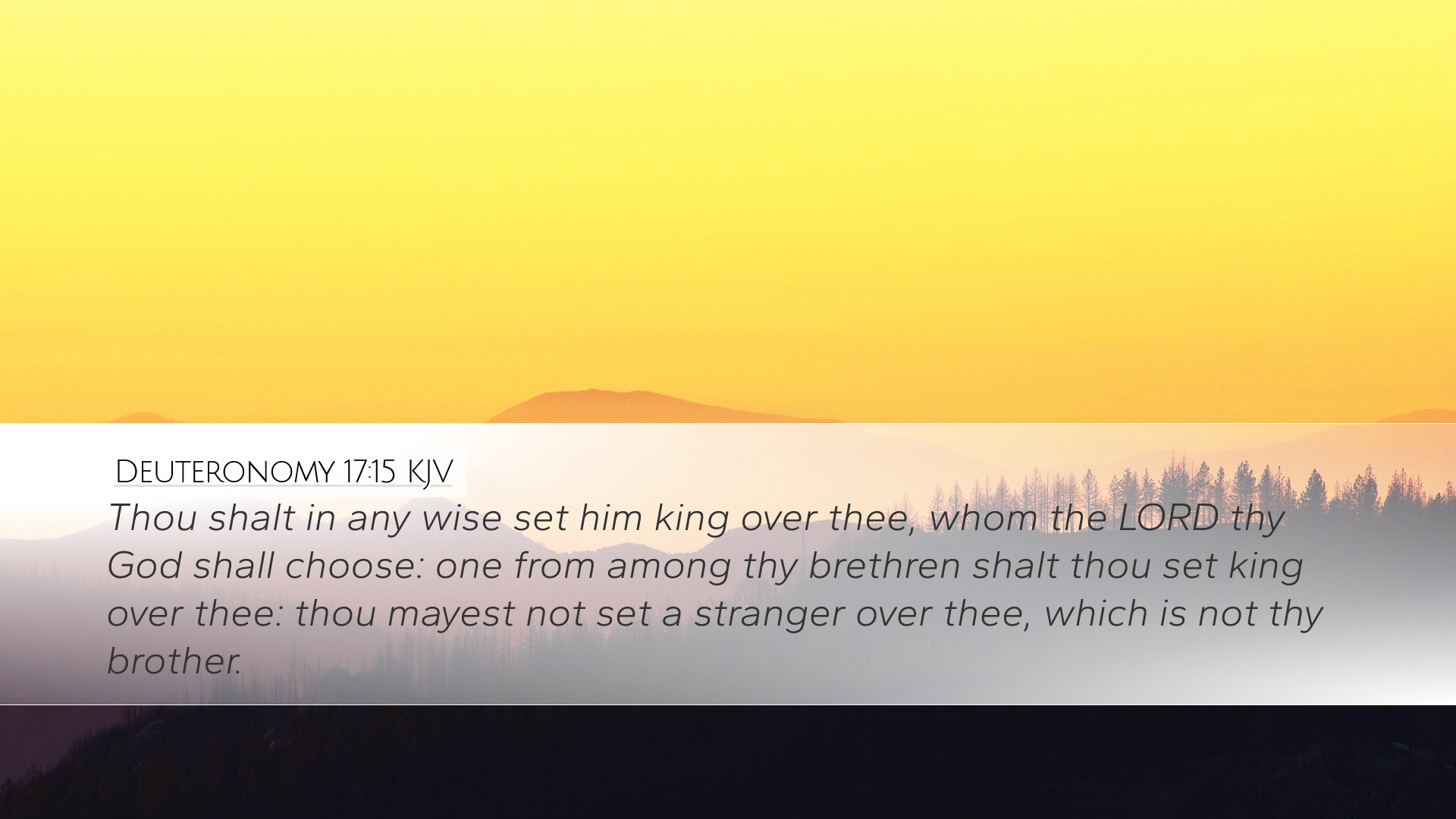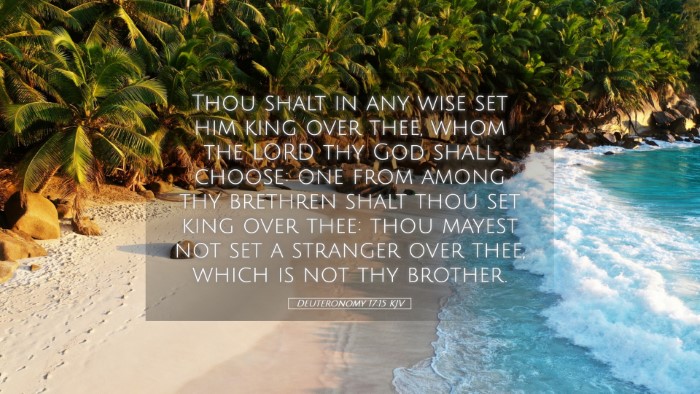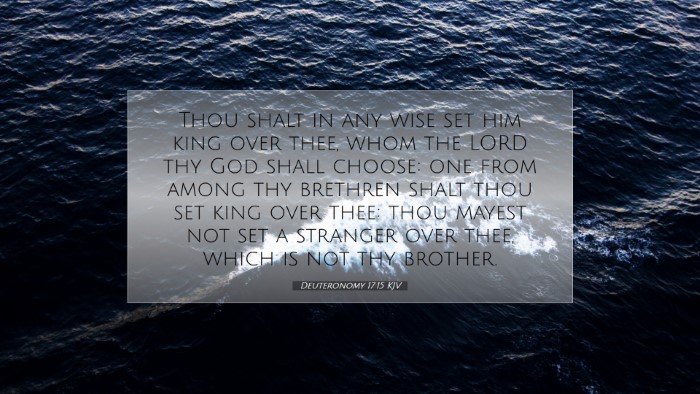Commentary on Deuteronomy 17:15
Verse Text: "Thou shalt in any wise set him king over thee, whom the Lord thy God shall choose: one from among thy brethren shalt thou set king over thee; thou mayest not set a stranger over thee, which is not thy brother."
Introduction
The directive given in Deuteronomy 17:15 concerning the selection of a king offers profound insights into the nature of leadership and governance among God's people. This verse serves to establish the divine criterion for kingship in Israel and reflects broader theological themes regarding authority, identity, and community.
Divine Selection of Leadership
Matthew Henry emphasizes that the primary criterion for appointing a king is that he is chosen by the Lord. This demonstrates that human authority should ultimately be rooted in divine choice rather than mere social or political agendas. When leaders are appointed under the guidance of God, they are more likely to govern in a manner that aligns with divine justice and righteousness.
Henry further notes that this instruction underscores the importance of spiritual discernment in leadership selection. A king chosen by God would ideally reflect God's character and uphold His commandments, fostering a nation that lives in alignment with divine standards.
Brothers in Faith
Albert Barnes provides an interpretation of the phrase “from among thy brethren.” He argues that this emphasizes the necessity of familial ties within the community. The king must be a member of the Israelite community, ensuring that the leader understands the people's struggles and aspirations. Leadership is thus portrayed not just as a role but as a relational position deeply embedded in the community's fabric.
Exclusion of Foreign Rule
The prohibition against appointing a foreigner as king, as mentioned in the latter part of the verse, carries significant theological implications. Barnes discusses how this guideline serves to protect Israel's unique covenantal identity. A foreign ruler might introduce alien practices and ideologies that could lead Israel away from their sacred mission as a nation set apart for God. This insight is crucial for understanding the cultural and spiritual preservation that God desires for His people.
Theological Reflections
Adam Clarke delves into the theological dimensions of this verse, noting that it contains lessons about the nature of God's kingdom. Clarke argues that the Holy Scriptures foreshadow the ultimate kingship of Christ, who embodies the perfect model of leadership and governance according to divine will. This foreshadowing implies that the chosen king should resemble Christ, ruling with justice, mercy, and humility.
Application for Today
This verse offers several key applications for contemporary pastors, students, theologians, and scholars interested in leadership within the church and society:
- The importance of divine guidance: Leaders today should seek God's direction in their decisions and appointments, recognizing that true authority is derived from Him.
- Community and relational leadership: Effective leaders must understand and connect with the communities they serve, embodying the values and ethos of that community.
- Faithfulness to identity: The church must be vigilant against influences that could dilute its mission and identity, much like Israel's need to protect itself from foreign kings.
- Christological perspective: In understanding leadership today, church leaders are encouraged to model their governance after Christ, reflecting His character in their service to others.
Conclusion
Deuteronomy 17:15 is far more than a simple legislative guideline; it reflects profound truths about divine governance, community integrity, and the nature of authority. By considering the insights of scholars such as Matthew Henry, Albert Barnes, and Adam Clarke, those in leadership can be enriched in their understanding of godly authority and the responsibilities that come with it. Ultimately, this verse serves as a reminder that true leadership must always align with God’s purposes and the integrity of His people.


